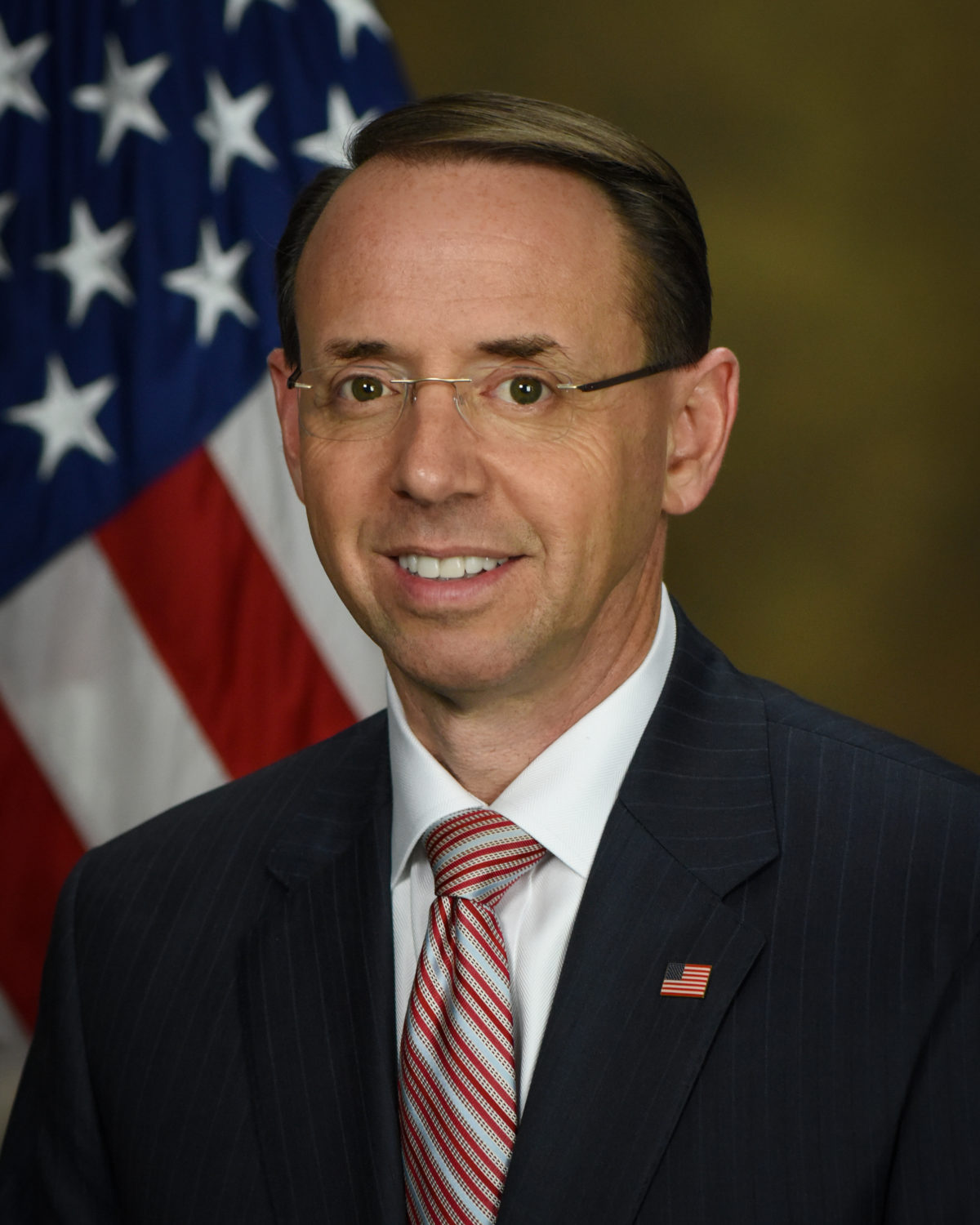Politics
Rod Rosenstein Defends Attorney General’s Handling Of Mueller Report

Rod_Rosenstein | Circa April 2017 | By United States Department of Justice [Public domain], via Wikimedia Commons
Outgoing Deputy Attorney General Rod Rosenstein on Thursday defended Attorney General William Barr against allegations that he is misleading Congress and the public about the special counsel’s Russia report.
“He’s being as forthcoming as he can, and so this notion that he’s trying to mislead people, I think is just completely bizarre,” Rosenstein said in a rare interview with The Wall Street Journal.
Democrats have accused Barr of releasing misleading information about special counsel Robert Mueller’s findings from his 22-month investigation, which focused on possible collusion between the Trump campaign and Russia, as well as whether President Trump tried to obstruct the probe.
Barr sent a letter to Congress on March 24 saying that Mueller was unable to establish that collusion occurred. On the obstruction matter, Barr said that Mueller declined to make a decision one way or the other on whether to recommend a case against Trump.
Barr said that he conferred with Rosenstein and Justice Department lawyers and decided against pursuing a case. Barr said that since there was no allegation of conspiracy, Trump had no underlying crime to conceal by obstruction.
Democrats heightened their criticism last week after The New York Times reported that members of Mueller’s team were frustrated that Barr had misrepresented Mueller’s findings. The anonymous sources claimed that there was a stronger case to be made on obstruction than Barr’s letter let on.
But Rosenstein, who appointed Mueller as special counsel on May 17, 2017 and oversaw the probe, said that Barr revealed as much information as he could. He also defended the review process taking place ahead of the release of the report. Barr said on Tuesday that he expects to give a redacted version of Mueller’s report to Congress “within a week.”
The Justice Department, in coordination with Mueller’s team, is reviewing the report to decide which grand jury and classified information to redact.
“It would be one thing if you put out a letter and said, ‘I’m not going to give you the report,'” Rosenstein told The Journal.
“What he said is, ‘Look, it’s going to take a while to process the report. In the meantime, people really want to know what’s in it. I’m going to give you the top-line conclusions.’ That’s all he was trying to do.”
All content created by the Daily Caller News Foundation, an independent and nonpartisan newswire service, is available without charge to any legitimate news publisher that can provide a large audience. All republished articles must include our logo, our reporter’s byline and their DCNF affiliation. For any questions about our guidelines or partnering with us, please contact [email protected].

